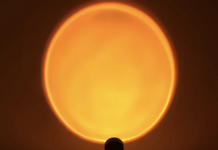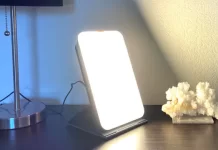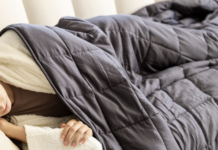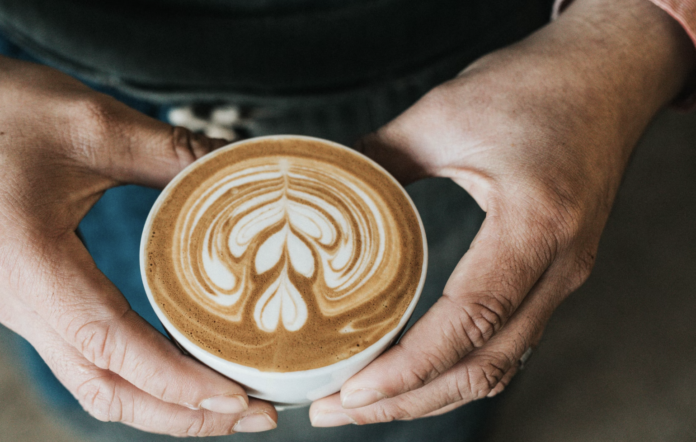We love a coffe, it’s one of life’s simple pleasures, and in a world surrounding us each day with so much worry, confusion and uncertainty, it’s great to know that there is one staple we can look forward to each morning – our nice, hot cup of coffee.
We are in no way trying to make you thing twice about your daily coffee routine, nor to take away one of life’s luxuries. However if you are prone to suffering from anxiety, read on and see how you could perhaps, adjust your outlook on the amount of coffee that you consume to better your overall mental health in the long run.
Does coffee cause anxiety?
The central nervous system stimulant caffeine can cause anxiety symptoms when used in excess. These include a fast heartbeat, feelings of unease, and restlessness.
Since the 15th century, people have been drinking coffee all across the world. In Australia today, more than 60% of adults claim to frequently consume coffee. We enjoy both the flavor and the effects of caffeine. It helps us get up in the morning, giving us the energy boost we need, and may even help us concentrate better. Additionally, there are some advantages to one’s physical health.
Coffee has a lot of advantages, but we also need to consider the negative effects of caffeine. You may already be aware that having too much coffee might cause “jitters.” People frequently ask whether caffeine might produce anxiety as a result of this.
Let’s examine the precise relationship between caffeine and anxiety.
What exactly is anxiety?
Let’s first examine what anxiety is and what its symptoms are before moving on to how coffee impacts anxiety. A typical human reaction is anxiety. We can avoid danger by worrying about things that are going on in our lives or surroundings such as persinal relationships or hating our jobs.
However, worrying is more than just a passing reaction to a scary or challenging event for those with anxiety disorders. People who suffer from anxiety disorders worry excessively about a wide range of issues, which can interfere with daily life.
- Anxiety disorders can in a variety of forms, including:
- Generalized anxiety disorder (GAD)
- Panic disorder
- Post-traumatic stress disorder (PTSD)
- Social anxiety disorder (SAD)
Some of the more common symptoms of anxiety are:
- Anxiety or restlessness
- Rapid heartbeat
- Quickly breathing
- Sweating
- Trembling
- Weakness or exhaustion
- Difficulty concentrating
- Insomnia
- Digestive (gastrointestinal) problems
What impacts do caffeine and coffee have?
The primary active component in coffee, caffeine, affects the central nervous system, which includes the brain and spinal cord. It prevents the adenosine molecule, which is responsible for the alertness that is frequently associated with drinking coffee.
However, the way caffeine affects the body might also have additional, less desirable effects. These negative effects may start to manifest in as little as 45 to 60 minutes and may persist for up to 3 hours. Despite being rarely harmful, side effects differ from person to person. Depending on how much caffeine a person is used to consuming, several consequences may occur. Genetics and body mass also come into play.
Common side effects we may feel with caffeine include:
- Anxiety or restlessness
- Irritability
- Digestive problems
- Often urinating
- Rapid heart rate
- Headache
- Excitement
- Shakiness
Sounds like something you are experiencing? If so, it’s because many of these are anxiety-related symptoms. So, if you have anxiety, it could be difficult to identify the difference between anxiety and caffeine’s negative effects. Additionally, caffeine may exacerbate your anxiety symptoms.
Lessening the side effects of caffeine
If you’re struggling with unwanted side effects of caffeine, there are steps you can take to ease them.
- Avoid coffee in the evening because it may cause sleep disturbances.
- Exercise caution if you consume coffee alongside other stimulants, such as Sudafed. The combination has the potential to make your side effects worse and elevate your blood pressure.
- The rate at which your body breaks down caffeine can be slowed down by certain antibiotics like Cipro and stomach medications like Tagamet. This indicates that caffeine stays in your bloodstream for a longer period of time and is therefore more likely to have long-lasting negative effects.
How much caffeine is too much?
The FDA states that the usual dose is 400 milligrams per day, or about 4 cups.
Caffeine consumption should be restricted or avoided by some people who are more susceptible to its effects. This includes young children and teenagers, women who are expecting or nursing, and individuals who have underlying medical or mental health issues.
That’s because drinking too much coffee increases your chance of experiencing rapid, erratic heartbeats, trembling in your muscles, and sensations of alarm or fear. Additionally, caffeine has been connected to substance use, including smoking, can impair heart function, and it can develop into a dependency.
Do coffee and caffeine cause anxiety?
No, caffeine in coffee does not make you anxious. Caffeine does not cause anxiety; nonetheless, the two substances might have similar side effects. However, drinking coffee may worsen anxiety symptoms.
According to research, caffeine consumption increases anxiety and the likelihood of having a panic attack in those with panic disorder.
Coffee and other caffeinated beverages should be avoided or consumed in moderation by those with anxiety. It appears that caffeine probably doesn’t create anxiety in persons without an underlying anxiety issue. However, pay attention to your own feelings and reactions.
What should I do if I’m concerned that caffeine may make me anxious?
- Fortunately, if coffee doesn’t agree with you, there are other options. For both coffee and tea, decaf options are available. If you are particularly dependent on your morning cup of coffee, try gradually reducing your consumption or save it for times when you need a boost.
- Additionally, you could discover that espresso or stronger coffee brews have a greater impact on your anxiety, so you might want to choose the milder selections.
- Remember that other foods and beverages may also contain caffeine. For instance, coffee, chocolate, and soft drinks all contain caffeine.
When to reach out to a professional?
While reducing your coffee intake may help you manage your anxiety symptoms, it’s still crucial to talk to your healthcare practitioner about them. There are numerous effective therapies available, ranging from dietary adjustments to counseling and pharmaceuticals.
As soon as possible, speak with your provider if:
- Your regular life is being affected by your anxiety symptoms.
- Your anxiousness is difficult for you to manage.
- Your anxiety is harming your relationships, work, or sleep.
- You exhibit any signs of depression, which frequently includes anxiety symptoms.
Final thoughts
Many of us enjoy our daily cup of coffee, and with good reason. Our energy and focus are increased by coffee and caffeine, which also has some additional health advantages. However, many people may also experience anxiety-related symptoms, which might potentially be aggravated by coffee. Reducing your caffeine intake is just one of the many tips to help ease anxiety and it’s debilitating symptoms.
It might be beneficial for certain people to eliminate caffeine in coffee and consider alternatives. Regardless of how much coffee you consume, it’s vital to discuss with your doctor about the best course of therapy if you do experience persistent anxiety symptoms.






























